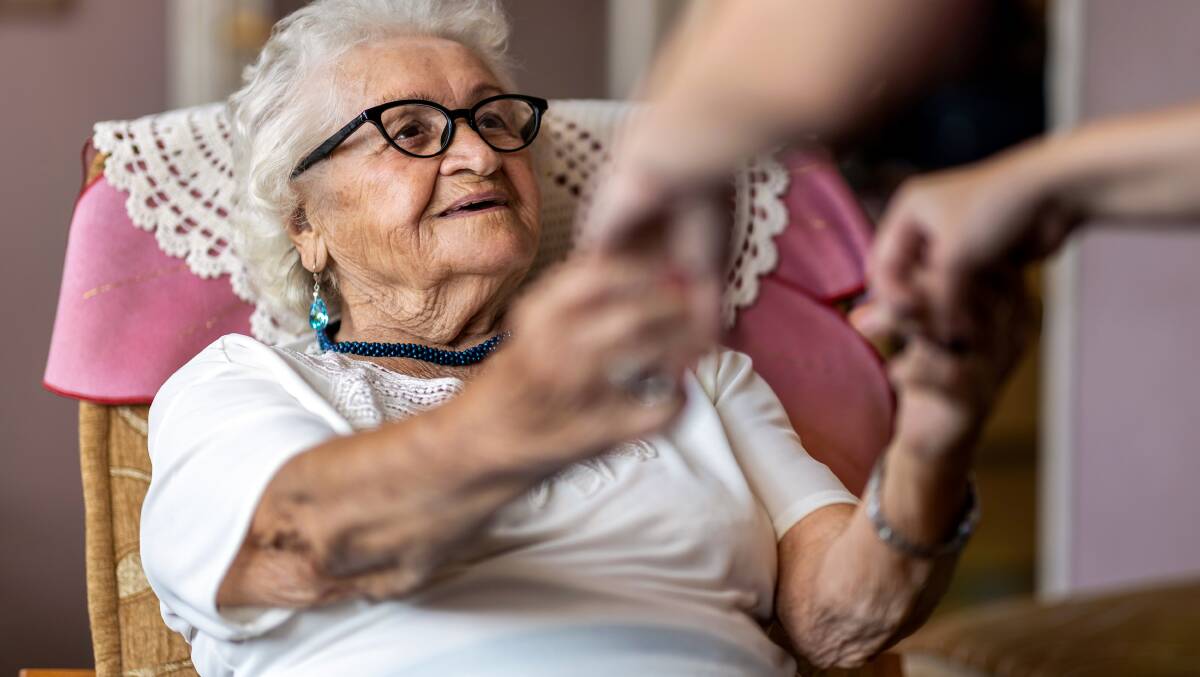Aged care beds are lying empty while elderly people languish in hospital unable to get a place, as the staffing and funding crises in aged care worsen.
Create a free account to read this article
$0/
(min cost $0)
or signup to continue reading
Some aged care homes, particularly in regional areas, are operating at only 50 percent capacity, despite growing waiting lists, as providers struggle to find enough staff.
At least 18 aged-care homes have closed or are due to close in 2023 - at least half of which have directly noted staff shortages as the reason for closing.
The lack of staff has had a flow-on effect on the hospital system. In NSW from December 2021 to Jun 2022 the number of regional patients awaiting discharge to an aged care facility nearly tripled.
Running on Empty
A new report by independent thinktank Committee for Economic Development of Australia paints a dire picture of the current situation in the aged care industry, despite efforts by the Federal government to improve the sector.

Duty of care: Aged-care sector running on empty quotes increasing costs, insufficient staff, poor wages (despite recent increases), the cost of living which is deterring people from taking low paid jobs in the aged care industry and lack of available affordable housing for workers.
Data from the Department of Health and Aged Care shows that 53 per cent of all aged-care facilities are operating at a loss and job vacancies in health care and social services remain the highest of any industry - showing the widespread demand for workers.
According to the report, "At a time of stubbornly high inflation, many workers are finding it difficult to remain in the sector, and employers are unable to compete on pay and conditions. And with unemployment remaining low, at 3.7 per cent nationally, workers can find higher paying jobs elsewhere."
The report, the third in CEDA's series on aged care, added, "Further wage rises will likely be necessary to attract the required number of workers to aged care. However, working conditions more broadly, such as rostering arrangements, training and career development, also need to change to encourage workers to join the sector."
Mandated staffing
"These staffing changes are important to increase the quality of care for older Australians, but they are adding pressure on providers already struggling to maintain their workforces and come on top of growing demand for home-care services."
Facilities must now provide an average of 200 minutes of care per resident per day by October 2023, rising to 215 minutes per day by October 2024.
This required a significant increase in staffing, with the sector previously only providing on average 190 minutes of care per day.
From July 2023, residential facilities were also required to have a registered nurse on site 24/7.
The changes were part of the response to the recommendations of the aged care royal commission.
Previous CEDA research found there would be a shortfall of at least 110,000 direct-care workers by 2030.
"Not enough has been done to fix this," Ms Winzar said.
"There must be more action from government to make meaningful progress on closing this workforce gap."
User pays
CEDA's recommendation include recruiting overseas workers with a special "essential skills visa"; introducing a user-pays system for aged-care clients who meet certain income or asset thresholds; and prioritising key worker housing in regional areas under the National Housing Accord and looking at options for rental assistance such as the National Rental Affordability Scheme.
Aged and Community Care Providers Association chief executive Tom Symondson said the report mirrored the issues and solutions already under discussion.
"We've been advocating for better access to education, improved access to housing for care staff particularly in rural areas, easier migration routes for overseas workers, and direct funding of targeted aged care workforce programs," Mr Symondson said.
"There is clearly an issue here between legislative requirements and the reality on the ground.
"The problems will only get worse with an ageing population, and demand spirals," Mr Symondson said.
Aged care provider Benetas chief executive Sandra Hills said, "We know that aged care employees in both regional and metropolitan areas of Victoria are finding it difficult to find affordable housing close to their work.
"We need to make it easier for our amazing aged care workforce to be able to carry out the important work that they do by addressing barriers such as the lack of affordable housing that make it hard to attract new workers."
Ms Hills said Benetas was in favour of an essential skills visa including aged care workers as it would address the lack of staff across the industry.
"We have seen across our industry that some aged care providers have been forced to leave aged care beds empty or simply not take on new home and community care clients due to staffing challenges," Ms Hills said.
"It's essential that we take a collaborative approach to address these issues to support the future needs of our ageing population."
Our journalists work hard to provide up-to-date news for seniors across Australia. This is how you can continue to access our trusted content:
- Bookmark www.thesenior.com.au
- Make sure you are signed up for our free Weekender, news, travel and health newsletters
- Follow us on Facebook


